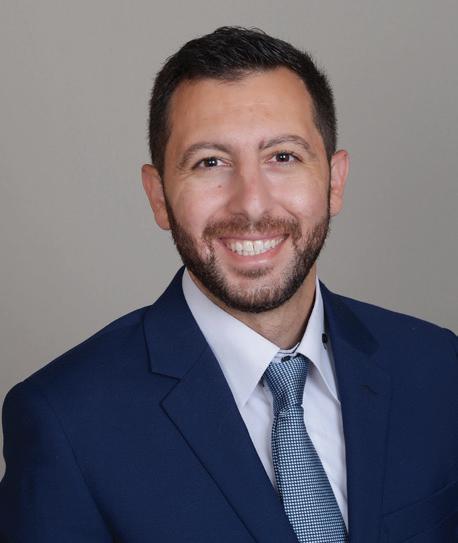
1 minute read
KAREN LUTRICK
PhD, MS
Associate Professor, Family and Community Medicine
Advertisement
Klutrick@arizona.edu
Karen Lutrick is an Assistant Professor in the Department of Family & Community Medicine at the University of Arizona. Her research interests focus on disaster medicine research, research operations, health disparities, dissemination and implementation science. She is also the Director of the National Foundation of Emergency Medicine, supporting Emergency Medicine physicians in developing translational research skills throughout the US.
Breanne Harvey
University of Arizona, BS Bharvey00@arizona.edu
Yá’át’ééh, my name is Breanne Harvey, and I’m a recent graduate with my B.S. in Public Health and an emphasis on Health Promotion here at the University of Arizona. I was able to obtain a Tribal Law certificate as well. My home is on the Navajo Nation, located in Teec Nos Pos, Arizona, but I had moved to Sahuarita, AZ for high school.
My passions lie in the betterment and growth for marginalized communities. I aspire to attend the James E. Rogers College of Law here at the University of Arizona to receive a dual degree with a J.D. and an MPH to combine my passions for public health and be able to be a voice for those impacted by our system.
⊲ PROJECT An Indigenous Data Governance Approach For Enhancing Ethical Research Policies And Practices
Under Dr. Stephanie Russo Carroll, and along with Ibrahim Garba and Adam Fernández, the NSF ER2 funded project: An Indigenous Data Governance Approach for Enhancing Ethical Research Policies and Practice aims to address historical barriers that hinder effective and ethical intercultural knowledge exchange in contexts of open science, open data, and data sharing. To do so the project strives to apply an innovative Indigenous data governance framework to review institutional norms and practices that promote or inhibit ethical design, outcomes, and approaches across the STEM research landscape. Research activities will include a comparative document analysis, an institutional analysis, expert and community engagement, and resource development and dissemination.





